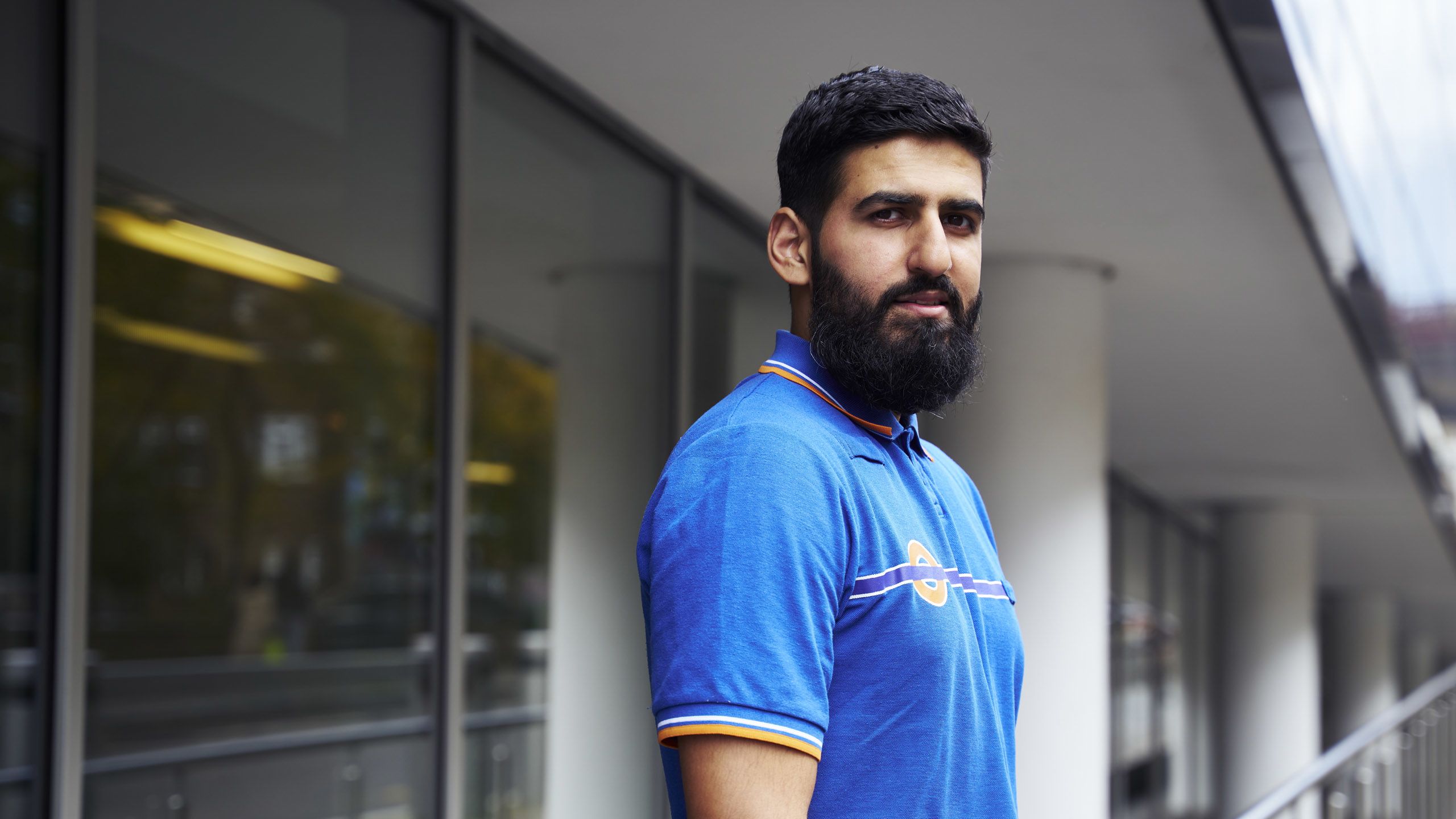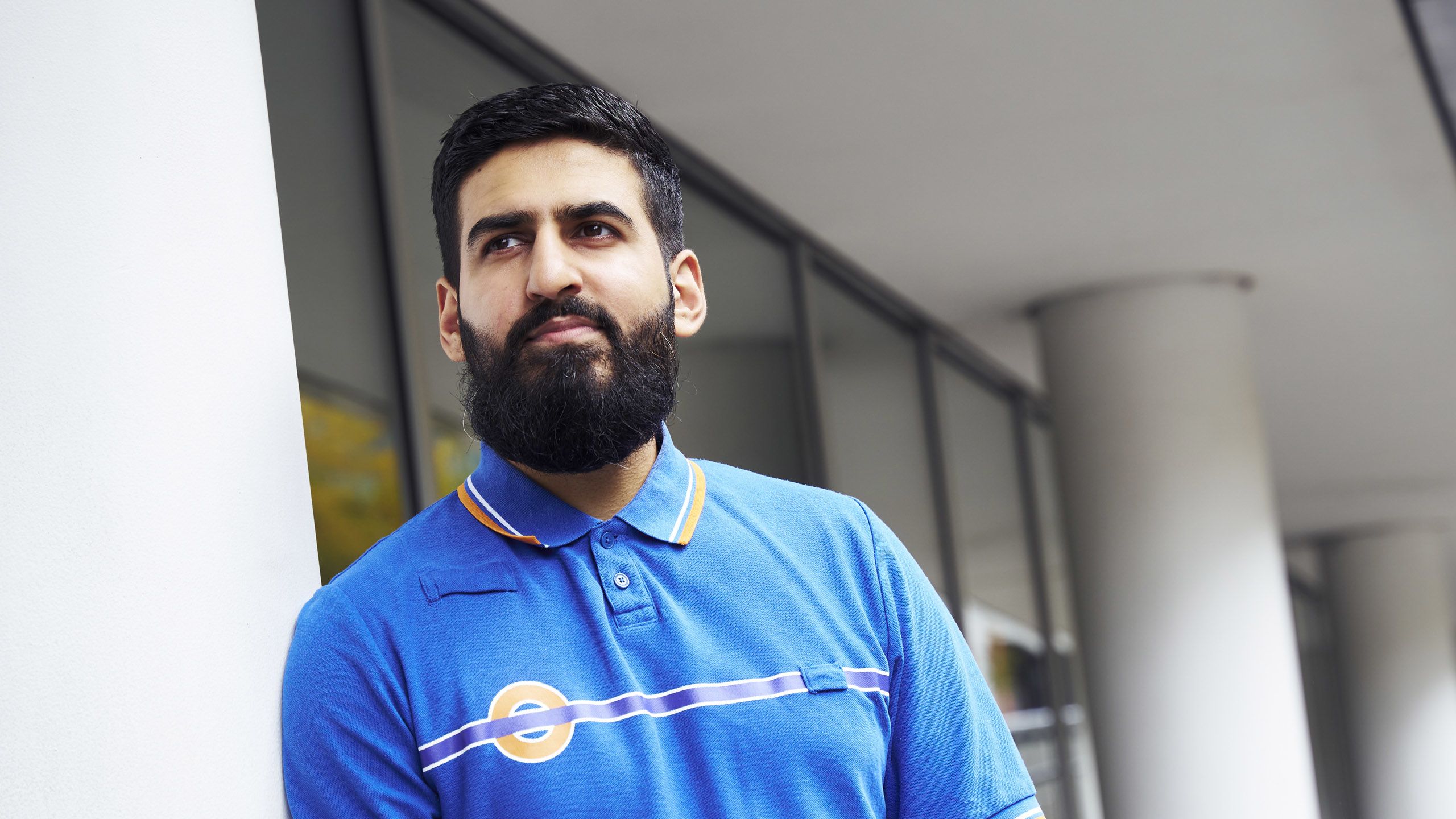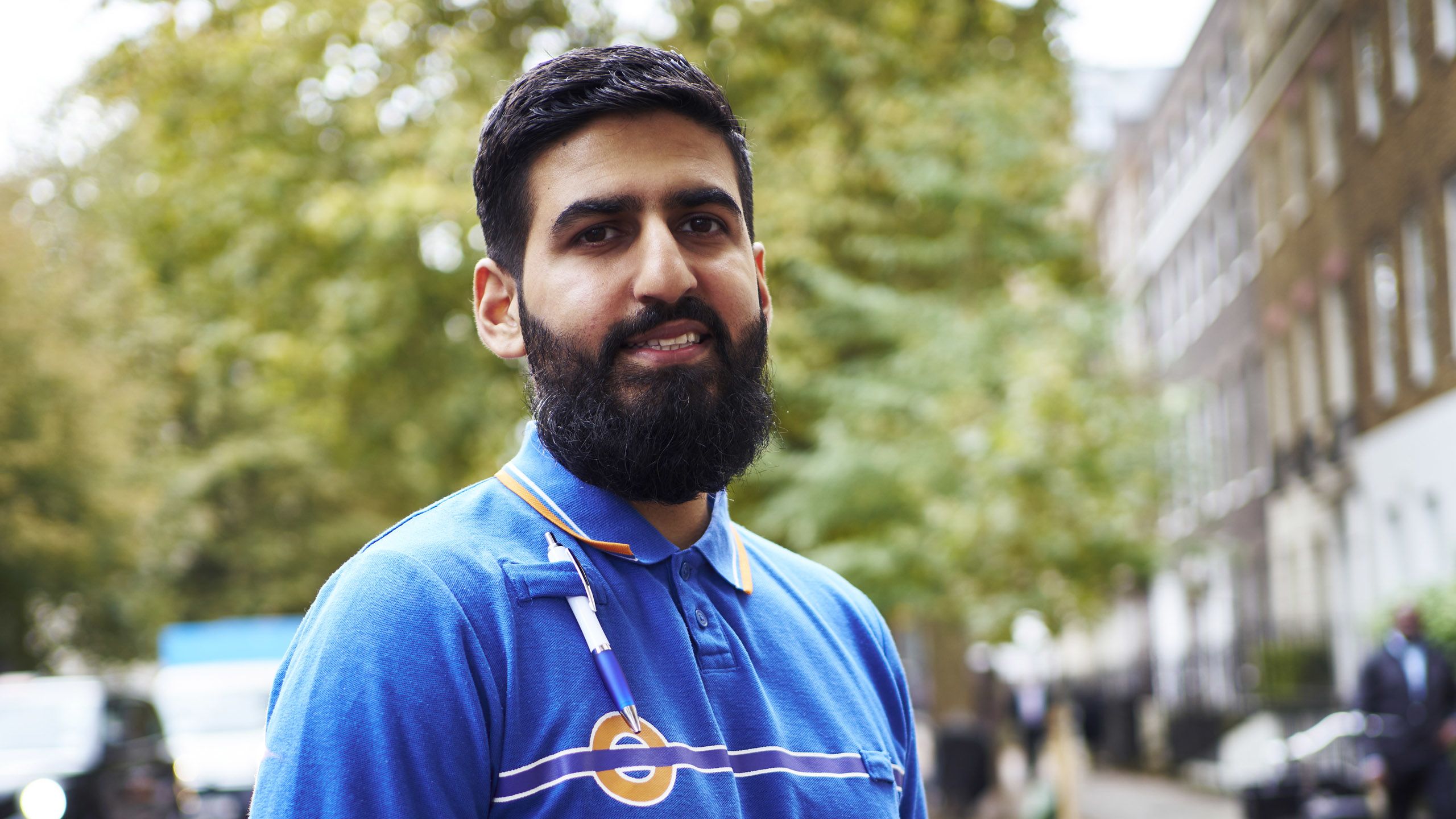“JUST PUTTING ON MY UNIFORM AGAIN MEANS SO MUCH”

How returning to work has given Ali Saeed a new sense of purpose
Driving a train turned out to be Ali Saeed’s dream job. Having left London City Airport looking for a new challenge, he enrolled as trainee driver with London Overground. He soon found that he enjoyed the responsibility of being at the controls, and spent eight years driving on what are now the Windrush and Mildmay lines. But that came to a sudden stop when he learned he had cancer.
“It was 23 October 2023 – I remember the date,” Ali recalls. “When the doctor told me, I zoned out. It took a few days to register exactly what I was dealing with.”
Ali had been diagnosed with Hodgkins Lymphoma, an aggressive form of blood cancer.
It was a devastating news for someone in his early 30s, with a wife and young daughter.
Months earlier, he had noticed a lump in his upper thigh but had ignored it, until his wife persuaded him to get it checked. A series of scans and a biopsy followed before the diagnosis was confirmed.
The cancer had been caught early and was treatable, but this meant four months of gruelling chemotherapy.


“It was incredibly tough,” he says. “I had every side effect going and I lost about 15kg in weight. Some days, you're just vomiting constantly as the medicines take their toll on your body. Mentally, I was in very dark places too.
“I lost all my hair and most of my beard. My beard is an important part of my faith, so I refused to shave the small bit that remained. I thought if I saw myself clean-shaven that would affect me mentally.
“My family were fantastic, so I focused on positives and used my faith to keep myself strong for them and my little one.”
By February this year, there were signs of improvement, and although the chemotherapy had finished, it was still a long road to recovery.
The company and his trade union had stayed in touch throughout, and played a crucial role in supporting Ali’s eventual return. Initial tests alongside an instructor showed that fatigue was still an issue. This meant he had to delay his return to driving duties until he built up his strength sufficiently.
This led to Ali developing a plan with occupational health to work part-time at Palestra, aiding his physical and mental recovery.


At the time of writing, Ali was working four days a week with the team analysing root delay coding. He aims to be fit enough to return to driving. In the meantime, this role has given him a new perspective.
He explains: “I'm learning much more about how delays affect the business. I’m able to bring my perspective as a driver to that, too.
“I'm thankful that the company and union have supported me like this. Throughout, they have said ‘put your health first’. I had begun to feel detached from the outside world. Just putting my uniform on and going to work means so much. It gives me
a sense of purpose.”
While Ali’s cancer is in remission, he remains at high risk of a recurrence for the next two years. It has changed his outlook on life and his message to colleagues is not to ignore any health issues.
“It was a wake-up call,” he says. “I’m now just enjoying every moment and creating as many memories as I can. Just don't take life for granted – you don't know what's around the corner.”





